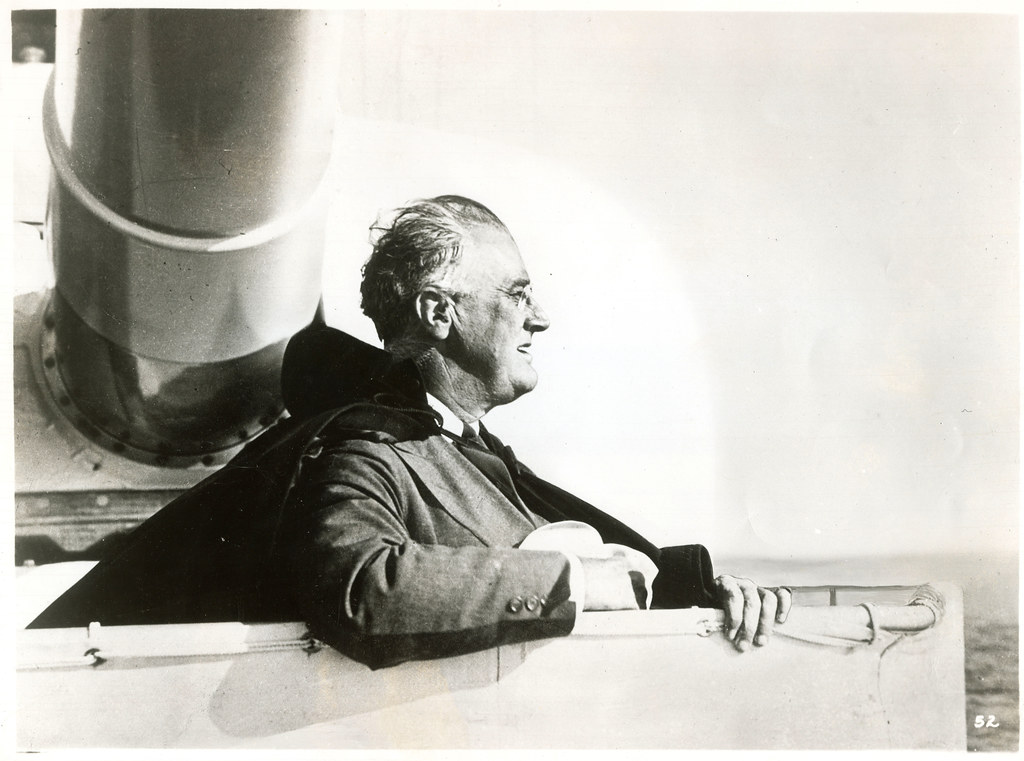
If there’s a mirror image opposite to Donald Trump’s second-term blitz, it’s Franklin D. Roosevelt, whose first 100 days in office is the model for presidents who want to get things done. Trump, working with Elon Musk, wants to redefine Americans’ relationship with government by firing federal workers, dismantling long-functioning agencies, and branding as much government spending as possible as wasteful. He’s also reworking global trade and international alliances. In contrast, Roosevelt, working with Congress, had public backing to address the Great Depression, building up the government with the New Deal, creating Social Security, breaking down trade barriers, and forming alliances.
Trump as an Anti-Roosevelt
Eric Rauchway, a historian and expert on Roosevelt, noted that Trump’s policies seem directly opposite to those of the New Deal. While Roosevelt acted with Congressional support to pass laws, Trump has relied on executive power, often bypassing legislative action. Roosevelt’s coalition of voters was broad and included diverse groups, including Midwestern farmers and Black voters. Trump’s popularity, by contrast, appears to be more personal, lacking the long-lasting coalition Roosevelt built.
Trump’s populism has supercharged divisions, particularly among voters based on education, but Rauchway argues that it’s too early to say if these trends will result in a lasting realignment. There is no evidence yet of a permanent shift similar to Roosevelt’s long-standing influence on the Democratic Party.
Trump’s efforts to dismantle the administrative state focus on more recent agencies like the EPA and the Department of Education, but some of his actions, such as going after organized labor and shuffling the National Labor Relations Board, reflect a continuation of the attack on New Deal policies. His reversal of Roosevelt’s approach to tariffs, which had been handled by Congress and later shifted to the presidency with the Reciprocal Trade Agreements Act in 1934, shows how Trump has moved in the opposite direction.
Trump has argued that if tariffs had been enacted earlier in the Great Depression, the effects would have been muted. However, Rauchway points out that Congress already doubled down on tariffs with the Smoot-Hawley Tariff, which ultimately worsened the economic downturn, making Trump’s argument inconsistent with history.
Roosevelt and Public Opinion
Roosevelt was ahead of public opinion in opposing the rise of Nazism and spent much of his first two terms educating the public about international affairs. His goal wasn’t to change history but to help Americans understand the larger world context that was affecting them.
Roosevelt’s power grew during his presidency, especially in response to the Great Depression and World War II. Trump, however, is not responding to a comparable economic crisis, though he seems intent on expanding presidential power, particularly through executive orders and tariffs.
Roosevelt’s attempt to pack the Supreme Court was about countering a judiciary that was unsympathetic to his policies, whereas Trump is targeting judges from his own appointed judiciary, which presents a different dynamic in how each president approached the courts.
FDR’s Legacy vs. Trump’s Third-Term Fantasy
The 22nd Amendment, passed after Roosevelt’s death, limits presidents to two terms. Despite this, Trump has hinted at running for a third term, a move that would defy the constitutional limit established after Roosevelt’s four-term presidency.
Roosevelt’s success in the midterm elections of 1934 and 1936, which defied historical trends, was due to the popularity of his policies that helped the country recover from the Great Depression. By contrast, Trump faced challenges during his first midterm, and his policies did not produce similar results.
Roosevelt’s New Deal policies helped the country recover from the Great Depression, transforming government and establishing key social programs. Despite this, many Americans fail to recognize the full impact of his policies and their lasting influence.
What The Author Thinks
While Trump’s efforts to dismantle government structures may resonate with his base, Roosevelt’s New Deal left a lasting legacy that has helped stabilize and guide the U.S. economy. Reversing this progress could lead to economic instability and weaken critical support systems for Americans.
Featured image credit: FDR Presidential Library & Museum via Flickr
Follow us for more breaking news on DMR
